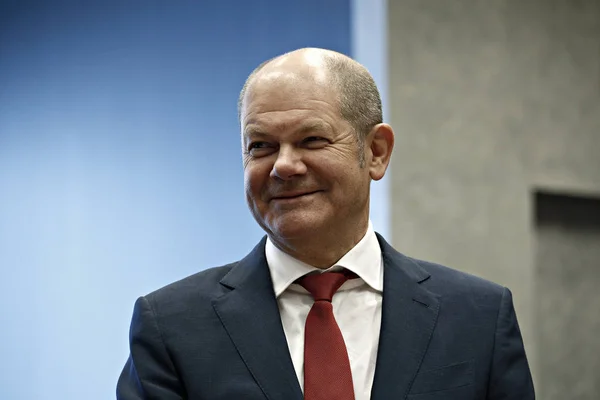Germany’s economic landscape faces turbulence as the Constitutional Court’s recent decision declares the government’s spending plans unconstitutional, leading to a freeze on public spending for the remainder of the year. This move deals a significant blow to Europe’s recovery efforts and ambitions to strengthen defenses and reduce carbon emissions.
The court’s decision is poised to exacerbate the economic speed gap between Europe and the U.S., where the economy has thrived, driven by substantial fiscal stimulus. Germany, as Europe’s largest economy, is grappling with contraction due to surging energy prices and trade tensions, casting doubts on its export-oriented business model. Chancellor Olaf Scholz’s government had envisioned bold spending on green-energy projects and technology to rejuvenate the economy.
The freeze on federal spending comes after the court defunded the government’s 60 billion euro green-transition project, emphasizing that Berlin cannot redirect unspent credits from pandemic-related allocations to environmental and energy projects. The ruling underscores Germany’s adherence to constitutionally enshrined fiscal rules, limiting budget deficits to 0.35% of GDP in normal times.
This decision forces Berlin to contemplate equivalent budget cuts or tax increases, raising concerns about the country’s competitiveness and its ability to retool the economy. The judgment also raises questions about the use of off-budget special funds for public investments, including a 100 billion euro plan to revamp Germany’s military, announced after Russia’s invasion of Ukraine.
While some German economists see the ruling as a necessary imposition of fiscal discipline, others fear it could hinder efforts to reshape the economy. The government must prioritize policy areas, such as boosting collective defenses, supporting Ukraine, or mitigating the impact of energy prices and inflation on businesses and households.
In the face of political fragmentation and crises, Germany’s three-party coalition is grappling with declining ratings. The far-right Alternative for Germany (AfD) has gained significant support, opposing military spending in Ukraine and generous outlays on refugees.
Finance Minister Christian Lindner acknowledges the profound effects of the verdict on statecraft. The ruling challenges Germany’s post-Ukraine spending spree, which aimed to support Kyiv, fortify defenses, reduce dependence on Russian resources, and shift to a zero-emissions economy. The court’s strict interpretation of fiscal rules presents legal difficulties for future governments seeking fiscal maneuverability.
The ruling suggests a necessity for Germany to retroactively declare a state of budgetary emergency for 2023, invoking a clause allowing spending limit suspension in exceptional circumstances. However, this plan faces legal challenges, given the court’s heightened criteria for declaring emergencies.
The court’s decision challenges assumptions about taking on debt to strengthen resilience and transform the economy amid geopolitical crises and climate change. Unlike war and natural disasters, the court argues that climate change is a foreseeable crisis that no longer justifies emergency spending.
Germany’s fiscal rules, enshrined under former Chancellor Angela Merkel, are more constraining than the EU’s fiscal rules. This cap has influenced Germany’s approach to borrowing, tax policies, and public investment, creating shortfalls in critical areas during years of low interest rates.
As European finance ministers consider new rules to tighten purse strings after pandemic spending, Germany’s fiscal challenges cast a shadow on Europe’s economic outlook. The verdict prompts a reevaluation of the country’s economic policies, questioning the use of special funds and the balance between fiscal discipline and the need for economic transformation.














